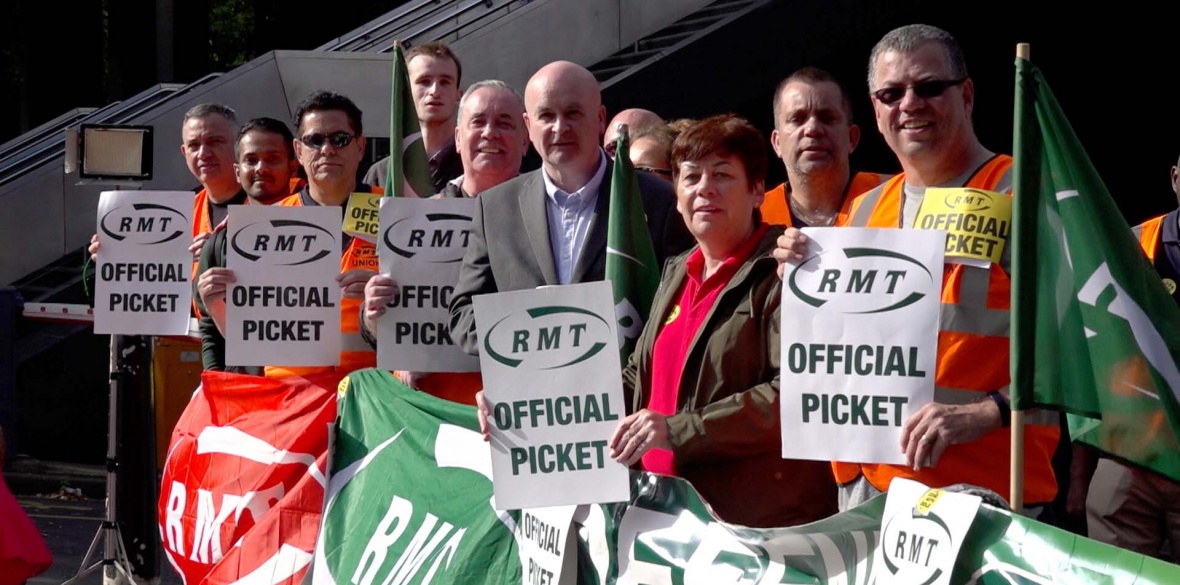This is the last article you can read this month
You can read more article this month
You can read more articles this month
Sorry your limit is up for this month
Reset on:
Please help support the Morning Star by subscribing here
AMERICAN writer Mark Twain satirised 19th-century oligarchs JP Morgan and John D Rockefeller as “robber barons” of the new “Gilded Age.”
Tory Britain in 2022 feels increasingly like a Mark Twain novel. Just not as funny.
Today, private utility giants levy tolls on customers safe in the knowledge that generous donations to their sponsored politicians will see off any short-term temptation to tax their windfall profits.
Meanwhile, these monopolists lobby against any plans to renationalise energy, water, mail and rail.
And is it any wonder? Tomorrow Centrica — parent company of British Gas, which slashed jobs and spending during the pandemic — will announce operating profits have increased to £1.3 billion, up from £262 million in the same period last year.
What goes for the energy monopolies also goes for private rail companies. According to the Department for Transport, between March 2020 and April 2022, private train operators received around £300m in management fees, which saw them nicely through the pandemic.
New government rail contracts take all the financial risk out of train operations and have rescued the profits of private train operators that were struggling to break even pre-pandemic.
Private train operators in England alone make £124m every year in management fees, feeding £73.5m in dividend payments to shareholders in 2020-21. Further dividends are forecast in 2022.
Thus, public money is siphoned into seven owning groups — 50 per cent to private rail companies owned by foreign states, subsidising railways in France, the Netherlands, Germany, Italy and China, and 50 per cent to 13 asset management funds that jointly own Go-Ahead and FirstGroup.
Company accounts show these new public-funded contracts have transformed the position of private train operators since 2020, restoring their profits to a total of £600m for 2020-21.
Now these private train companies armed with monopoly contracts to exploit Britain’s rail network, are proposing to “repurpose” railway ticket offices “to reflect complexity of the change with the network of hub stations resized in stages in line with passenger demand.”
In plain English, this means closing booking offices and staffed travel desks in railway stations, as train company bosses freely admit in meetings with RMT negotiators.
Oddly, when the chair of the private train companies’ Rail Delivery Group met MPs at the House of Commons transport select committee recently, he was uncharacteristically coy, telling them: “We have not agreed to close any ticket office at this moment in time. We have said that we want to look at how we can redeploy people on stations. A lot of people that we have in ticket offices are very much trapped behind plate glass.”
Citing safety screens installed in many cases during the Covid pandemic to protect staff is a rather obvious ruse designed to distract from the real intentions of train operators who derive income from walk-in ticket sales.
Closing a source of expert advice on how to access the cheapest appropriate rail fares forces rail users to rely on ticket vending machines and online sales. This is a classic monopoly price-gouging operation to cut jobs and fleece customers.
While rail bosses attempt to mislead MPs on the future of railway ticket offices, Transport Secretary Grant Shapps opened his own public consultation on the “Williams-Shapps Plan for Rail” on June 9.
At the centre of the Williams-Shapps plan to cut up to £4bn in public spending on public transport, is a massive destaffing project to cancel a third of planned railway maintenance, reintroduce plans for driver-only trains and facilitate closure of every ticket office in England.
The public consultation on a new public body Great British Railways (GBR), being rushed through before the public is even aware of it, is due to close on August 4.
Rail users’ group, the Association of British Commuters is campaigning for an extension to the consultation period, so passengers, campaigners, and trade unions can respond.
The reality behind the rail bosses’ prevarications to MPs and the Department of Transport’s rushed public consultation is essential passenger rail services in Britain are at greater threat now than at any time since the Beeching era of the 1950s, and so far details have been hidden from public view.
In October 2021, a secret Department of Transport “market engagement process” set out details of the new passenger service contracts (PSCs) due to be let by GBR.
Simultaneously, private companies in the Rail Delivery Group published their own report demanding GBR should set only “base level requirements” and that private train operators should retain control of cross-industry functions, including timetable specification, marketing and ticket retailing, maximum autonomy over fare pricing, and commercial and operational management of stations.
While public attention is being diverted to the grotesque spectacle of the Tory leadership contest, our railway services, staff are being butchered in the interests of monopoly profits by rail bosses who behave like 19th-century robber barons.
Every rail worker standing up for their jobs, working conditions and the right to be paid a real-terms pay increase by taking strike action this week is standing up for the public interest.
Please show them your solidarity by supporting our picket lines and helping stop the Tories’ Great Train Robbery.










